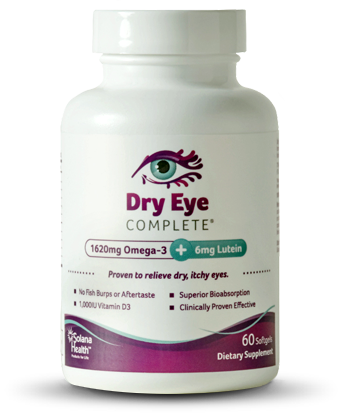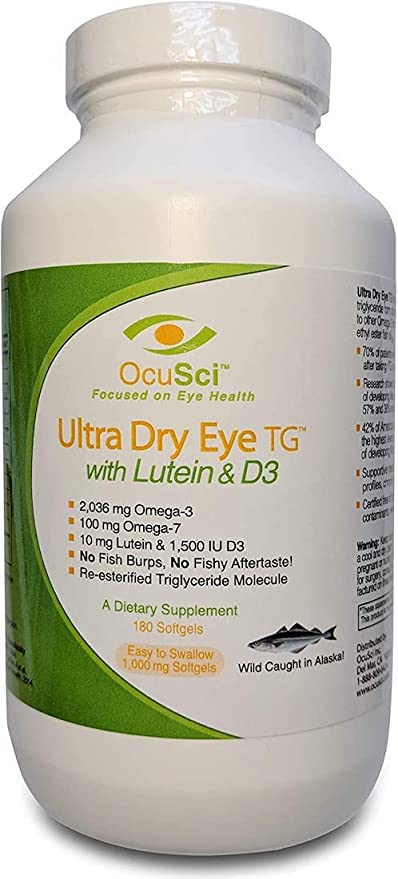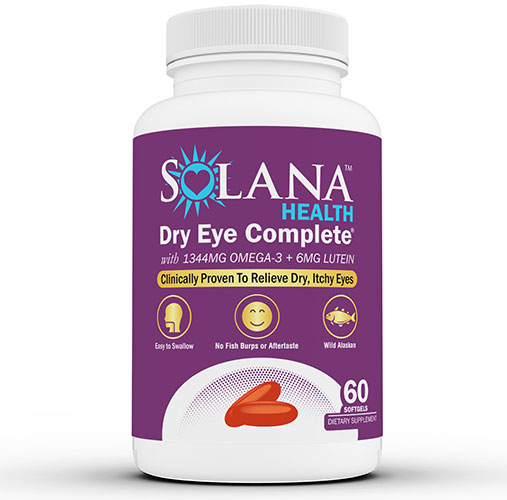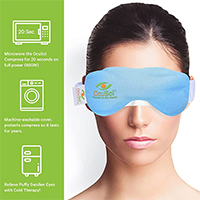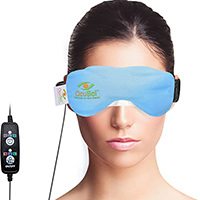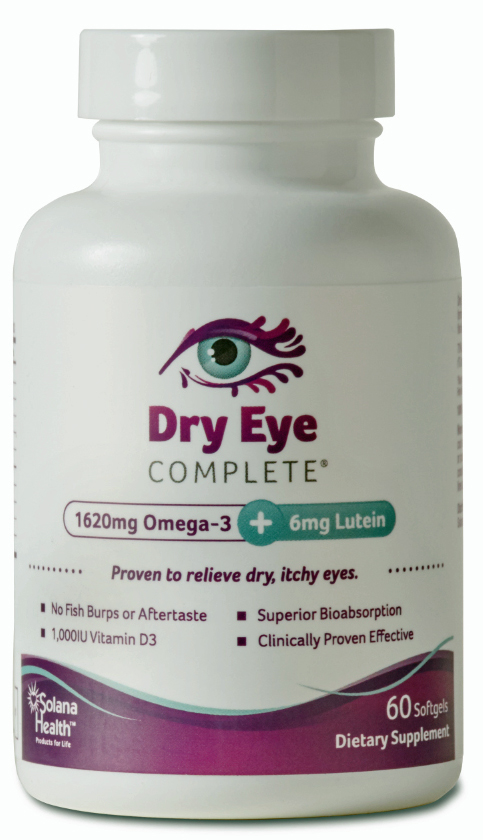It’s important to remember that your eyes are sensitive to irritation from a range of allergens and chemicals in your environment, which means that drugs have every opportunity to hurt or damage the eyes too. Fortunately, in most cases of drugs that have a negative impact on eye health, you will find that the adverse effects are temporary. Nevertheless, even small eye conditions that lead to excess dryness could impair your quality of life. The following are some of the most common pharmaceutical drugs that could have an impact on your eye health.
Flomax (Tamsulosin)
If you have ever taken the drug known as Tamsulosin, or Flomax, then you could end up suffering from a condition known as IFIS, or Intraoperative Floppy Iris Syndrome. Interestingly, however, you may not realize that you are suffering from this particular condition until you need cataract surgery. During surgery, your doctor may find a problem with your eye that indicates IFIS. In most cases, the colored part of your eye known as the iris is a stiff segment, but with IFIS this becomes floppy during cataract surgery. Some experts have suggested that the reason for this is that Flomax damages the muscle tone in your eye. Unfortunately, IFIS can cause a range of problems, including vision loss.
Importantly, you could still be at risk, even if you stopped taking Tamsulosin a long time ago, up to a year before your surgery. Be sure that you speak to your eye doctor ahead of time if you have taken this drug, as she or he will be able to plan ahead for IFIS and reduce the risk of complications.
Oral Anti-coagulants
Warfarin, heparin, anisindone, and coumadin, as well as a number of other oral anti-coagulants are prescribed to stop blood from clotting, or to help break up some of the clots that might have already formed within a patient’s arteries, veins, or lungs. These substances are typically referred to as blood thinners, but they actually don’t do anything to thin the blood. Sometimes, these substances can cause something known as a subconjunctival hemorrhage within the eye. These can range from a small red dot that appears in the white of the eye to the whole eye becoming dark red and blood shot in color. In most circumstances, these conditions will begin to clear up themselves within ten days, without any need for extra medication. However, it’s worth noting that most sufferers should seek extra medical advice if their eyes are painful, or sensitive to the light.
Plaquenil (Hydroxcholoriquine Sulfate)
Plaquenil is a medicine that is often prescribed by doctors for cases of rheumatoid arthritis. In some cases, it can also be given for the treatment and prevention of malaria. Though it is rare, one in every five people who have been taking the drug for five or more years could find that the medication leads to retinal damage in the form of hydroxychloroquine retinopathy. This condition generally takes place when you have been taking hydroxychloroquine for five or more years, and it causes severe damage to the retina. Consistent regular exposure to this substance can result in progressive damage until you lose your vision permanently. Fortunately, if the condition is caught during the earlier stages, it is possible for the problem to be reversed. Make sure that you inform your optician if you have been taking this medication regularly so he or she knows what to watch for when completing your regular eye checks.
NSAIDs
NSAIDs, or non-steroid anti-inflammatory drugs, such as naproxen sodium, ibuprofen, and aspirin can all lead to eye related problems. Some of the most common issues include retinal hemorrhages, dry eye, glaucoma, and cataracts. If you suffer from dry eye as a result of NSAIDs, you should be able to get eye drops to deal with the problem. What’s more, if glaucoma is detected during the early stages, it can usually be treated using medicated eye drops. More advanced problems will be treat with microsurgery or regular surgery. In some cases, mild cases of hemorrhages in the eye can be undetected and simply reabsorbed themselves. However, severe cases can lead to visual impairment and will need to be treated through laser eye surgery.
Sulfa Antibiotics
Sulfa antibiotics, such as bactrim, cotrim, septra, and sulfisoxazole, are often used in an effort to treat a wide range of different bacterial infections. However, these medications have been linked to angle-closure glaucoma, which occurs when pressure builds rapidly within the eye. It has been reported that patients who suffer wide open or narrow angles are mostly susceptible to this form of rare reaction and it usually will occur within the first few doses if it is going to happen at all.
EDDs
Erectile dysfunction drugs (EDDs), such as tadalafil, sildenafil, and vardenafil, can all cause problems with vision such as hazes and light sensitivity. Although these side effects are quite rate, some of the EDDs have also been linked with the optic neuropathy known as NAION. This condition causes damage to the optic nerve which results in irreversible vision less. In most cases, patients who are taking these tablets experience no adverse symptoms within their ocular systems, and patients who do develop problems have usually had a previous history of various vascular disorders like myocardial infraction, atherosclerosis, hypertension, diabetes, and more.
Accutane
Accutane is a form of medication that is generally prescribed to people who suffer from severe acne. This substance has been documented to cause some problems with vision, including nyctalopia – though this is generally seen to be a very rare side effect. Night blindness or nyctalopia occur when you lose the ability to see in low level lighting. In some circumstances, people will find that their vision is fully restored when they stop taking Accutane. However, it is worth noting that in very rare instances people might experience permanent vision loss at night. It is imperative for this reason that anyone who suffers with side effects or changes to their vision when taking Accutane should contact their doctor or physician immediately.
Antihistamines
Antihistamines are often available on an over-the-counter basis in most food shops and pharmacies. These substances are commonly used to treat small allergic reactions that people generally have to insect bites, hay fever and other problems. Though regarded as typically safe, it’s worth noting that these substances can frequently cause a dry feeling in the eyes. The reason for this is that the drugs are designed to dry up the mucus that is present within your nose, which then causes the drying of other mucous membranes – including the ones in your eye. Light sensitivity represents another common side effect, and some people experience changes to their pupil size. Most of the time, symptoms will stop once you stop taking antihistamines.
Antidepressants
Medications used to treat depression, such as Prozac, fluoxetine, amitriptyline and more, can all have an impact on eye health. Antidepressants are sometimes also prescribed to assist with irritable bowel syndrome. Recent studies have found short term rises in interocular pressure after single oral doses of Prozac or fluoxetine. Though the pressure present within the eye seems to settle again once the treatment course has ended, it’s worth noting that Prozac has also been linked with a range of other visual problems, such as dry eyes, blurred vision, double vision, and dilated pupils. All of these symptoms are considered to be normal side effects, and if you experience any of them you should speak to your doctor immediately, as it may be worth changing your medication to avoid any further discomfort.
Birth Control Pills
The oral contraceptive pill is taken at present by literally millions of different women across the world in an attempt to ease period intensity, prevent pregnancy or stop ovulation. Unfortunately, the contraceptive or birth control pill is usually linked to increased numbers of migraine headaches and dry eye symptoms. Rarely, the pill has also been linked to issues that involve being unable to see colors well. No permanent damage should be done, and your side effects will usually go away when you stop taking the pill. However, if you notice any side effects it’s worth speaking to your doctor to see whether your pill can be changed for an alternative option.
Cortisone Steroids
Cortisone steroids, such as triacet, kenalog, prelone, prednisone, alphatrex, diprolene, diprosene, and more, can be used to treat a wide range of different conditions, including skin conditions like psoriasis, allergic reactions, ulcerative colitis, breathing disorders, and arthritis. Unfortunately, prednisone is frequently considered to be the most dangerous drug around when it comes to eye related health. Extended use of any steroid based medication or prescription drug has frequently been linked to the onset of various eye related problems such as glaucoma, as well as damage to the optic nerve and cataracts. Glaucoma represents the buildup of pressure within the eye which can lead to vision loss if it is left untreated for long periods of time.
Fortunately, it is worth keeping in mind that many instances of glaucoma can actually be treated quite successfully if they are caught early enough. Unfortunately, most people find that cataracts and other problems caused by cortisone steroids will get progressively worse over time, meaning that they can only treated with surgery. Remember to inform your doctor to any changes that take place within your eyes or vision and inform your optician that you are taking steroid based medications for extended periods of time.
Switching Your Medication
If you notice any changes with your eyes that seem to occur when you start taking a specific medication, it’s important to get in touch with your doctor as quickly as possible. Remember to take a list of all of your medications to your appointment, including your prescription drugs, over the counter treatments and herbal supplements. If your doctor things that one of your medications is to blame, he or she will switch it out with another option.
References and Resources:
- Drugs that Harm Vision – Drugs Associated With Eye Problems and the Specific Issues They Cause (NaturalEyeCare.com)
- Could My Medications Affect My Sight? – Eye Problems That Can Be Caused by Exposure to Certain Medications (WebMD.com)
- Medications That Hurt Your Eyes – Overview of Some of the Most Common Eye Symptoms Caused by Medication (Irlen.com)

